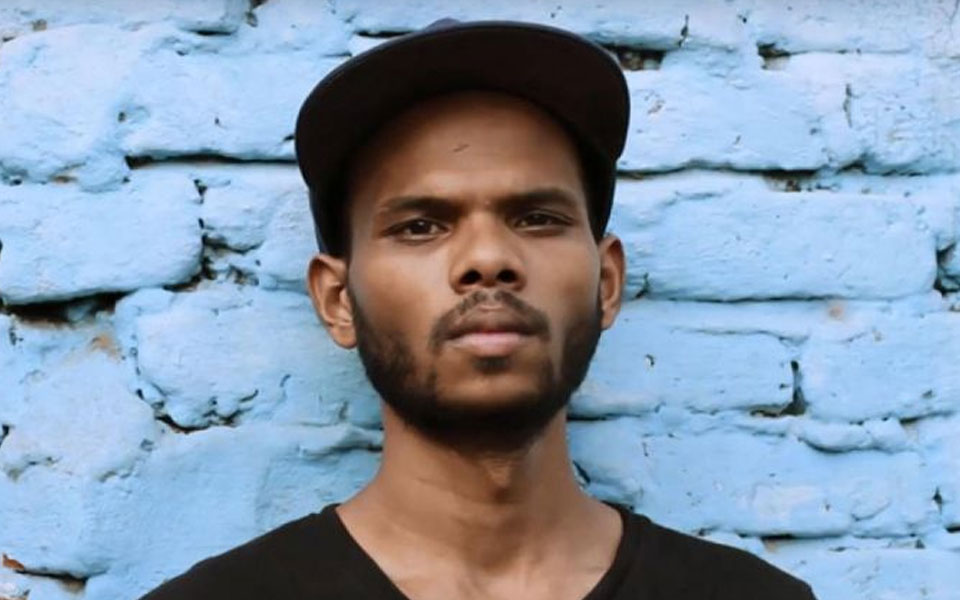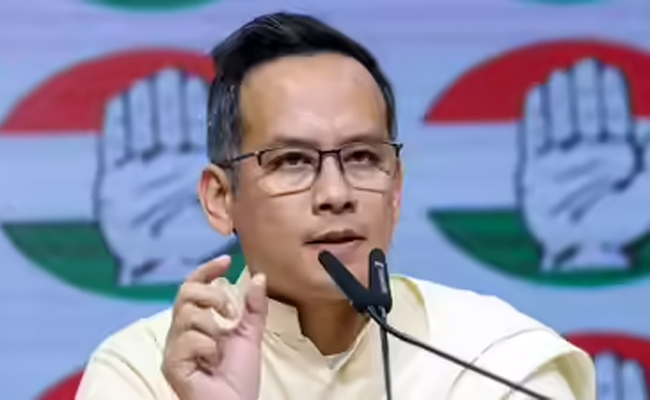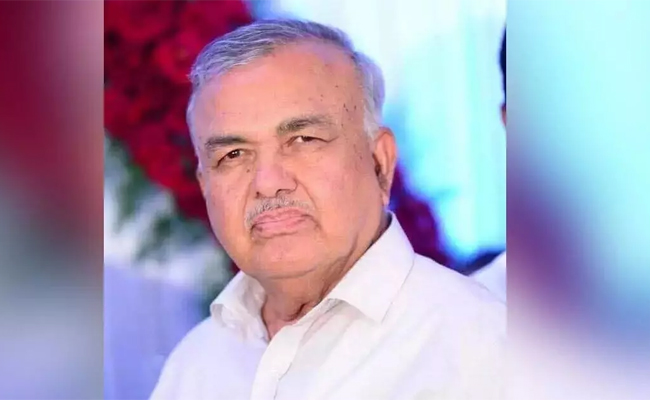Hip-hop music and its humble origin as a counter-culture against racial discrimination in the United States is well known. The African-American artistes articulated their woes against the white oppressors through this genre of music, also known as rap music.
Since then, this music form has been considered as the voice of the voiceless around the globe. In spite of India having several rappers, only a few have addressed serious social issues.
Sumeet Samos, a JNU student who hails from Tentulipadar village of Odisha, recently released his first hip-hop single 'Ladai Seekh Le' (Learn to Resist), on the caste discrimination in India. The video music begins with Samos' own experiences and addresses the various discriminations faced by the Dalits. The lyrics (in Hindi) poses several questions to higher castes and demands fellow Dalits to 'learn resistance'.
Anti-caste activist
A post-graduate in Spanish and Latin American Literature, Samos calls himself an 'anti-caste student activist'. He has been active in Ambedkarite movements in the JNU campus. He says he is not particularly 'proud or ashamed' of being born and brought up in a Dalit community, but rather thinks of it as part of his historic identity.
It is the Dalit literature and interactions with various political groups that made him think about presenting his views on caste discrimination. His interest in hip-hop music led him to choose this medium for that.
"I realised that there was an instinct in me which pushed me towards this and so yeah, given the reach of the medium and since no one from our community had done it before, I thought I should get into it," says Samos.
Inspired by black singers like Joyner Lucas, Childish Gambino, Kendrick Lamar and Tupac Shakur, Samos says their voice against gun violence, illegal incarceration and questioning white supremacy etc makes him use music as a major tool to fight injustice. "Therefore, I try to follow their methods but under my own local context," he says.
Caste discrimination
'Ladai Seekh Le' begins with Samos' articulating about an extended caste discrimination in JNU campus. He says in spite of having good grades in the examination, he was denied scholarships and recommendation letters. Samos, through the video song, calls it a "brutal form of discrimination he faced in JNU."
"JNU is just hyped to be one progressive space but has a history of opposing affirmative actions for marginalised sections - for both students and faculties," opines the 24-year-old student.
He alleges discrimination based on caste in the interview for courses in JNU. "The Left speak on behalf of marginalised sections but are least bothered about the reality," averse Samos. "I think it is their desire to maintain hegemony over us," he adds.
Oppressed people in India have come up with various art forms to fight against the injustice they face on a daily basis and propagate emancipatory politics. Samos cites examples like "the Dalit Lokshahirs of Maharashtra and the Chamar pop singers of Punjab like Amar Singh Chamkila and Lal Singh Dil."
Unlike in America, in India hip-hop did not flourish among the marginalised sections. Singers from the upper classes dominated the scene for years. According to Samos, the reasons can be attributed to the music market and investments like capital, studio etc. "The upper caste people had all these requirements and they appropriated it soon as part of the centuries-old tradition to take up anything which could provide fame and influence in order to maintain supremacy over the marginalised," he says.
However, there are artistes from the marginalised sections who understand the power of hip-hop and explore its possibilities to fight day-to-day exploitations in the society. In Samos' opinion, the new changes make "Hip-hop more transformative." And he is hopeful that "groups like 'Casteless Collective' (a band from Chennai) and individuals like me will take this journey forward by bringing in the anti-caste discourse in hip-hop."
The video ends with the graffiti calling 'Free Chandrashekhar Ravan,' the co-founder of Bhim Army, who is in Uttar Pradesh jail for months under draconian National Security Act (NSA) for his alleged involvement in Saharanpur violence in May last year.
courtesy : deccanherald.com
Let the Truth be known. If you read VB and like VB, please be a VB Supporter and Help us deliver the Truth to one and all.
Guwahati (PTI): The opposition Congress on Tuesday took the lead in announcing its first list of 42 candidates for the upcoming assembly elections in Assam, with it comprising both sitting MLAs and former ministers, and also new faces, including sons of three prominent politicians.
The party's chief ministerial candidate and state president Gaurav Gogoi will contest from the prestigious Jorhat assembly constituency, currently held by BJP's Hitendra Nath Goswami.
The Deputy Leader of the Opposition in the Lok Sabha will make his first electoral foray for the assembly.
ALSO READ: Loan recovery agent in Bengaluru murdered for reportedly stepping on accused’s foot
Gogoi is currently the party MP from the Jorhat parliamentary constituency and previously represented Kaliabor twice before it was reconstituted during the delimitation exercise in the state.
The leader of the opposition in the state assembly, Debabrata Saikia, will contest from the family stronghold of Nazira, which he has represented since 2016. His father, former chief minister Hiteswar Saikia, and his mother, Hemoprava Saikia, previously represented the constituency.
Three sitting MLAs -- Nandita Das from Hajo-Sualkuchi, Diganta Barman from Barkhetry and Nurul Huda from Rupohihat -- have also been included in the list.
Das, a two-time MLA, had earlier contested from Boko but following the delimitation exercise in the state, she has been shifted to Hajo-Sualkuchi while Barman and Huda will contest from the same seats they represented in the current assembly.
Former minister and state Congress president Ripun Bora will contest from Barchalla while another former minister, Ajit Singh, will contest from Udharbond constituency in Barak Valley.
Former minister and Deputy Speaker Pranati Phukan, a four-time MLA till 2016, will contest from Naharkatia in Upper Assam.
Tanzil Hussain, son of Dhubri MP Rakibul Hussain, will contest from Samaguri where he had lost to BJP's Diplu Ranjan Sarmah in the 2024 by-elections which was necessitated following the election of the senior Hussain to Lok Sabha.
Prateek Bordoloi, son of Nagaon MP Prodyut Bordoloi, will contest the Margherita seat which was represented by his father thrice since 2001.
Former five-time MP and prominent tea tribe leader Paban Singh Ghatowar's son Pranjal Ghatowar will contest from the Chabua-Lahowal seat.
Assam Pradesh Mahila Congress president Mira Borthakur, who had unsuccessfully contested the last parliamentary polls from Gauhati, has been given the ticket for the prestigious Dispur constituency.
Former BJP MLA Ashok Sarma, who was denied ticket by the ruling party in 2021 and went on to join the Congress in 2024, will contest from his previous Nalbari seat.
Another former BJP MLA and Deputy Speaker Aminul Haque Laskar, who joined the Congress in 2024, will contest from Sonai constituency in Barak Valley.
Former AGP MLA Satyabrat Kalita, who joined the Congress in September 2025, will contest from Kamalpur seat.
Other prominent faces in the list include former Congress MLAs Durga Bhumij from Doomdooma, Binanda Kumar Saikia from Sipahjhar and Bubul Das from Jagiroad (SC) constituency.
The Congress is a leading part of the unified opposition alliance, 'Asom Sonmilito Morcha', formed to challenge the ruling BJP, and has entered into seat-sharing arrangements with the Assam Jatiya Parishad (AJP) and the Left, but is yet to finalise it with Raijor Dal.
Presently, the ruling BJP's strength in the 126-member assembly is 64, while its allies AGP has nine MLAs, UPPL has seven and BPF has three members.
In the opposition camp, the Congress has 26 MLAs, AIUDF has 15 members and CPI(M) has one MLA. There is an Independent legislator as well.





